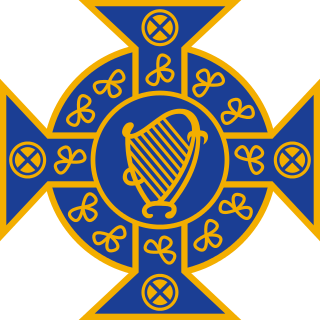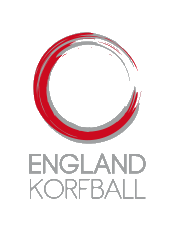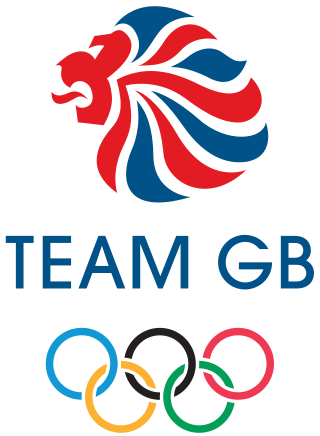
Korfball is a ball sport, with similarities to netball and basketball. It is played by two teams of eight players with four female players and four male players in each team. The objective is to throw a ball into a netless basket that is mounted on a 3.5 m high pole.

The Rugby Football League (RFL) is the governing body for rugby league in England. Founded in 1895 as the Northern Rugby Football Union following 22 clubs resigning from the Rugby Football Union, it changed its name in 1922 to the Rugby Football League.
Home Nations is a collective term with one of two meanings depending on context. Politically it means the nations of the constituent countries of the United Kingdom. In sport, if a sport is governed by a council representing the island of Ireland, such as the Irish Rugby Football Union (IRFU), the term can refer to the nations of the constituent countries on the island of Great Britain and the island of Ireland as a whole.
Association football is organised on a separate basis in each of the four constituent countries that make up the United Kingdom (UK), with each having a national football association responsible for the overall management of football within their respective country. There is no United Kingdom national football team. Football has been the most popular sport in the UK since the 1860s. Rugby union, rugby league and cricket are other popular sports.

Sport in the United Kingdom plays an important role in British culture and the United Kingdom has played a significant role in the organisation and spread of sporting culture globally. In the infancy of many organised sports, the Home Nations, England, Scotland, Wales, and Ireland were heavily involved in setting out the formal rules of many sports, and formed among the earliest separate governing bodies, national teams and domestic league competitions. After 1922, some sports formed separate bodies for Northern Ireland, though many continued to be organised on an all-Ireland basis. For this reason, in many though not all sports, most domestic and international sport is carried on a Home Nations basis, and England, Wales, Scotland and Ireland are recognised as national entities.

The United Kingdom national football team is a football team that represents the United Kingdom. Despite football being the most popular sport in the country, the team has not played since 1965 as separate teams represent each home nation in all major international football tournament such as the FIFA World Cup and UEFA European Championship, as well as various friendlies. It is the home nations which are FIFA affiliated and not the United Kingdom as a whole.
The Scotland Rugby League is the governing body for rugby league football in Scotland. It administers the Scotland national rugby league teams.
Field hockey in Great Britain is governed by Great Britain Hockey. The organisation focuses on international competition only.

The Ireland national football team represented the island of Ireland in association football from 1882 until 1950. It was organised by the Irish Football Association (IFA), and is the fourth oldest international team in the world. It mainly played in the British Home Championship against England, Scotland and Wales. Though often vying with Wales to avoid the wooden spoon, Ireland won the Championship in 1914, and shared it with England and Scotland in 1903.

The England national korfball team is managed by the English Korfball Association (EKA), representing England in korfball international competitions. In 2007 the Great Britain national korfball team was split into 3 national teams: England, Wales and Scotland, that compete in all international competitions except the World Games, where they compete as a unified Great Britain national korfball team.
The Wales National Korfball Team often referred to as the Welsh Korfball Squad (WKS) is managed by the Welsh Korfball Association/Cymdeithas Pêl-Corff Cymru, and represents Wales in international korfball competition. The Welsh Korfball Squad entered its first IKF ranking competition in 2007, after the Great Britain national korfball team was disbanded to produce three teams: England, Wales and Scotland. Wales is a fully recognised member of the International Korfball Federation and is currently ranked 18th in the world.

The Scotland National Korfball Team is managed by the Scottish Korfball Association (SKA), representing Scotland in korfball international competitions. It entered in competition in 2007, when the Great Britain National Korfball Team was split in 3 teams: England, Wales and Scotland.

This is a list of the Ireland national football team results from 1882 to 1899. From 1882 to 1921 all of Ireland was represented by a single side, the Ireland national football team, organised by the Irish Football Association (IFA).

Since 1922, the United Kingdom comprises four constituent countries: England, Scotland, and Wales, as well as Northern Ireland. The UK Prime Minister's website has used the phrase "countries within a country" to describe the United Kingdom. Some statistical summaries, such as those for the twelve NUTS 1 regions of the UK, refer to Northern Ireland, Scotland, and Wales as "regions". With regard to Northern Ireland, Scotland and Wales particularly, the descriptive name one uses "can be controversial, with the choice often revealing one's political preferences".

The Great Britain men's Olympic football team is the men's football team that represents the United Kingdom at the Summer Olympic Games. The team is organised by the English Football Association as the men's footballing representative of the British Olympic Association. The team only competes in the Olympic Games. In other international football tournaments, the Home Nations of the United Kingdom are represented by their own national teams, a situation which pre-dated the establishment of a GB team.

Rugby league is played across England, Ireland, Scotland and Wales, but its heartland in parts of the North of England is where the sport is most popular, and is where the majority of professional clubs are based. The sport was first established in the George Hotel, Huddersfield, where 22 clubs split from the Rugby Football Union to form the Northern Rugby Football Union.

The British Basketball Federation, known as British Basketball, is the national sports governing body for basketball in Great Britain. It organises Great Britain teams for men and women in international competition. Northern Irish players normally compete for Ireland, but are also eligible to compete for the GB.

The Great Britain national rugby sevens team is the men's international rugby 7s team that is the representative team of Great Britain. The team competes in the annual World Rugby Sevens Series as well as the Olympic Games and European Games. Historically, Great Britain was represented in rugby 7s by England, Scotland and Wales but the inclusion of Rugby 7s at the Olympic and European Games, together with funding issues has resulted in the formation of a permanent combined team from 2023. The separate England, Scotland and Wales teams play in the Rugby World Cup Sevens and the Commonwealth Games.

The Northern Ireland national football team represents Northern Ireland in international association football. From 1882 to 1921 all of Ireland was represented by a single side, the Ireland national football team, organised by the Irish Football Association (IFA).

The Northern Ireland national football team represents Northern Ireland in international association football. From 1882 to 1921 all of Ireland was represented by a single side, the Ireland national football team, organised by the Irish Football Association (IFA).










